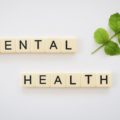
We all experience low moments—days when the world feels heavy and motivation slips away. But when those feelings don’t pass, when joy fades from your life, and even the simplest tasks feel like climbing a mountain, it could be something more serious. That “something” might be depression.
Depression is a common mental health condition that affects how you feel, think, and function in everyday life. It can happen to anyone, at any stage of life, and it’s not a sign of weakness or failure. It’s a real health issue—and it’s treatable.
Core Symptoms of Depression
There are many signs of depression, but three symptoms lie at the heart of it:
- Persistent low mood – This isn’t just feeling sad for a day or two. People with depression often describe a deep emptiness or emotional numbness that lasts for weeks or even months. It can feel like a grey cloud hanging over everything, even when there’s no clear reason for it.
- Loss of interest or pleasure – Also known as anhedonia, this means that the things that used to bring joy, like hobbies, socialising, music, or even food, suddenly feel meaningless. You might find yourself avoiding activities you once looked forward to or feeling disconnected during time with loved ones.
- Low energy or fatigue – Everyday tasks like getting out of bed, brushing your teeth, making a meal, or going to work can feel overwhelming. This exhaustion isn’t just physical; it’s emotional and mental too, making even small decisions feel like a huge effort.
These symptoms are more than just mood changes—they affect how people live and relate to the world around them.
Real-Life Changes That Might Signal Depression
Depression can creep in quietly, often mistaken for stress, tiredness, or even laziness. For example, someone who once loved gardening might suddenly stop going outside or tending to their plants. A person who was once sociable may begin to withdraw from friends and family. These changes aren’t about attitude or effort—they are signs of a real and serious condition.
How Depression Differs from Normal Sadness
Feeling sad in response to a loss, disappointment, or stress is part of being human. Usually, this sadness fades with time or support. Depression, however, stays for at least two weeks—and often much longer. It can take away your ability to function, cloud your thinking, and drain your hope, even when nothing obvious has gone wrong.
Self-Care and Lifestyle Management
Mild to moderate depression can sometimes be eased by making small but meaningful changes:
- Move your body: Regular gentle exercise like walking or stretching can lift your mood naturally.
- Eat nourishing food: What you eat affects how you feel. Try to keep meals balanced.
- Stick to a sleep routine: Sleep problems are common in depression. Going to bed and waking up at the same time daily helps reset your rhythm.
- Avoid alcohol and drugs: These may numb feelings temporarily, but often make things worse in the long run.
- Stay connected: Isolation fuels depression. Reach out to someone you trust or join a support group.
Talking Helps: Therapy and Support
Talking to a mental health professional can be one of the most effective steps in recovery. Therapies like cognitive behavioural therapy (CBT) can help you understand your thought patterns and learn practical ways to challenge negative thinking. Simply being heard and supported can be powerful.
Joining a support group can also help. Hearing others’ stories and realising you’re not alone often brings comfort and new insights.
Medication as Part of Recovery
For moderate to severe depression, doctors may recommend medication, usually antidepressants. These help to balance brain chemicals that influence mood and emotion. Medication is not a “quick fix,” but it can provide a foundation for other forms of healing, like therapy and lifestyle changes. Always discuss risks, benefits, and options with a healthcare provider.
When to Seek Help
You should consider reaching out to a professional if:
- Your symptoms have lasted longer than two weeks.
- Daily tasks feel too difficult to manage.
- You feel hopeless, overwhelmed, or have thoughts of harming yourself.
Speaking to a GP, therapist, or mental health support line can be a powerful first step toward feeling better.
The Road to Recovery
Recovery from depression is possible, though it may take time. Some people recover with self-help strategies and support from friends or family. Others may need professional care, therapy, medication, or a combination of all three. There’s no one-size-fits-all solution, but there is hope.
What matters most is starting somewhere, even if the step is small—getting out of bed, making a phone call, or opening up to someone you trust.
Final Thoughts
Depression doesn’t define you, and it doesn’t last forever. With the right support, treatment, and care, healing is not only possible—it’s likely. You are not alone, and help is available. Reaching out is a sign of strength, not weakness. Life can feel brighter again.





